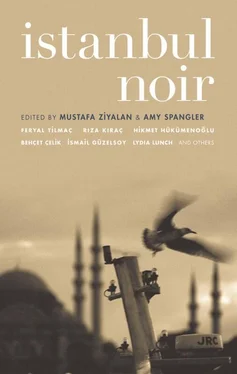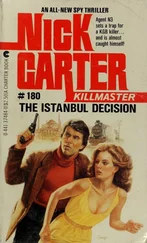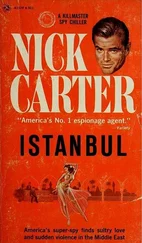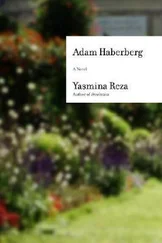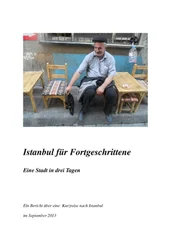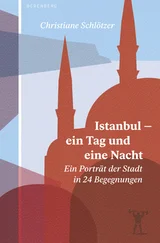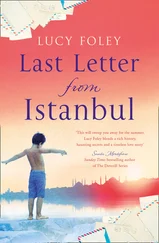Simply because she loved them so much, because they made such a fuss, because they insisted.
Actually, these things were the least of her troubles. What really got on Cemile Abla’s nerves was how her friends pressured her to get married, how they were constantly introducing her to potential grooms.
In her youth, Cemile Abla used to love to walk to Bebek and get a cherry-vanilla ice-cream cone, sit on a park bench with a dog-eared Sait Faik book, and just relax. But nowadays, in front of the ice-cream stands stood long lines of bronze, blonde-haired girls, pot-bellied boys, and odd, shaggy dogs of a sort she had never seen before. Cemile Abla had begun to feel like a stranger in her own land, as if at any given moment she might be caught and deported. But instead of worrying herself over nothing, she’d made a resolution not to venture beyond the cemetery, the boundary of white marble separating Rumelihisarı from Bebek, during normal waking hours. She would go for walks in the wee hours of the night, once the fancy dining high-lifers and the bar brawlers had hopped into their cars (which were usually parked on the sidewalk and nearly toppling into the sea) and gone home, once all the apartment lights had been turned off, once all the dogs had stopped howling.
What she liked most about these walks was the fishermen. Because of the wall of wedding boats blocking access to the shore, not many fishermen, other than Captain Hasan, stopped by these parts anymore. But there were a few who, as if by some unspoken agreement, would draw their boats ashore in the shadow of Hisar on moonlit nights and, if they happened to be in the mood, reminisce about the old days for hours on end. Sometimes they’d lean on the old cannons at the base of the towers. It made Cemile Abla happy to see them as she walked along the deserted sidewalks and the asphalt roads now devoid of passing cars. She’d join them when invited; there was no need to insist. She would join them not because she couldn’t say no, but because their conversations reminded her of her father. She’d sit down on the old blanket they’d have spread out on the ground, sticking her legs out to the side and bending them just so, and then she’d cover her knees with the edge of her topcoat and sip on the half-full tea glass of undiluted rakı that they’d offer. It was during those hours that the fishermen, so reticent during the daytime, would wax talkative; they’d discuss sea currents and schools of fish, they’d tell stories about the adventures of Ali Reis, ask Cemile Abla how she was getting on, and then, when dawn began to break, they’d get back into their boats, their minds at ease, knowing that they had done their duty and tended after the daughter of the great man who preceded them. Then they would head out into the foggy waters of the Black Sea.
Cemile Abla had one condition for the potential grooms who came to meet her. They had to meet at her home, not outside. And they had to come after dark (she had no intention of falling prey to the tongues of those pint-sized gossip mongers playing ball out in the streets), but not too late (She didn’t know yet if these new neighbors of hers were the snoopy sort or not). Sure he can come over, we’ll drink some tea and chat and get to know one another, she’d say. And then we’ll see . Having so thoroughly enjoyed their first visit, the gentlemen would want to meet a second time. By the second visit, however, they did not have to be told: It would become blatantly obvious that Cemile Abla had absolutely no intention of marrying. Disappointed and resentful, they’d go back home, and after a few days, all they would recall was the delicious cake, the tarts, and the faint smell of fish.
Luckily, Cemile Abla had so far encountered only two obstinant potentials. The first was a lawyer with a single, long eyebrow. He drank his tea warm with four heaps of sugar. For some reason he just hadn’t been able to find a proper companion and, because his heart could no longer bear his mother’s griping, he had decided to take care of the matter as swiftly as possible. After all, his mother — may she live long — was on her deathbed (as she had been for years). And so from now on he was not going to be picky; he was willing to overlook small defects. On his second visit he informed Cemile Abla that he was going to take her to kiss his mother’s hand and discuss engagement plans. An apartment in Üsküdar was ready and waiting for them; they could sell this ramshackle house with its creaking wooden planks and put the money in the bank. The three of them, mother, son, and daughter-in-law — may they live long — would come together and build a happy little nest of their own.
The second one was a handsome, bright-eyed, bushy tailed man. He was at least ten years younger than Cemile Abla, well off, and apparently had a hankering for older women. So much so that by their second meeting he had two plane tickets in his pocket and had already booked a room at a hotel in Bodrum. “Are we going to stay in the same room?” Cemile Abla had asked. Was it such a bad idea for them to slip under a blanket and get to know one another better for a few days, seeing as they were about to share the same pillow for the rest of their lives? The worst part about it was that the man’s smoky voice and the sparse hair on his fingers up to the first joint actually turned her on. “I’m not going anywhere until you say yes,” the young candidate had announced. When he smiled, his lower lip protruded ever so slightly.
Today’s guest didn’t look much like a mama’s boy. And he had no intention of locking Cemile Abla up in a hotel suite or anything of the sort. He was very polite; his first wife had died of breast cancer (—What a pity /—Yes, it was truly a pity); he was Nalan’s brother’s army buddy, so he wasn’t really a stranger. His eyes were red, as if he cried all the time (—I think I need to change my glasses prescription /—Oh my, yes, you should get that looked at right away); he was a retired history teacher (—Yet you’re still so young /—But I just can’t deal with teenagers anymore); he suffered from gastritis and ulcers; he couldn’t have salt because of his blood pressure; and he was very lonely.
Cemile Abla was too happy with her own life to settle for alleviating some guy’s loneliness. The thought of growing old and dying in a home full of stomach pills and history books gave her goosebumps. (—What’s the matter, Cemile Hanım? Are you okay? /—Oh, it’s nothing. Just a little chill.) Besides, she’d made her decision as soon as he told her that he hadn’t had a bite of fish since he was a child, and that he held his nose whenever he walked by a fish stand.
“You see, I had this accident once when my mother tried to force me to swallow fish oil,” he’d explained, and just as he was about to go into the details, Cemile Abla excused herself and went to the kitchen.
Cemile Abla had long ago reconciled herself to the fact that she would never be able to find a husband like her father; and deep inside she was relieved about this. But at the same time, she didn’t want to be rude to her matchmaker friends, or the eager potentials who came to visit. At some point in the middle of their first meeting, she would get lost in thought and weigh the possible match thoroughly, sincerely, without prejudice, and with a clear head. But there was no need to waste any time considering the possibility of a man who couldn’t tolerate the smell of fish.
Timur Bey (—My father was a great admirer of Tamberlaine, that’s how I got my name. /—Won’t you have another piece of cake?) was so excited that he failed to notice Cemile Abla’s evasive answers, her distress, her constant escapes to the kitchen. His mind was elsewhere: He had one foot in the grave, he was certain that this was his last chance, so he had promised himself that he wouldn’t give up until he had resolved this matter once and for all.
Читать дальше
